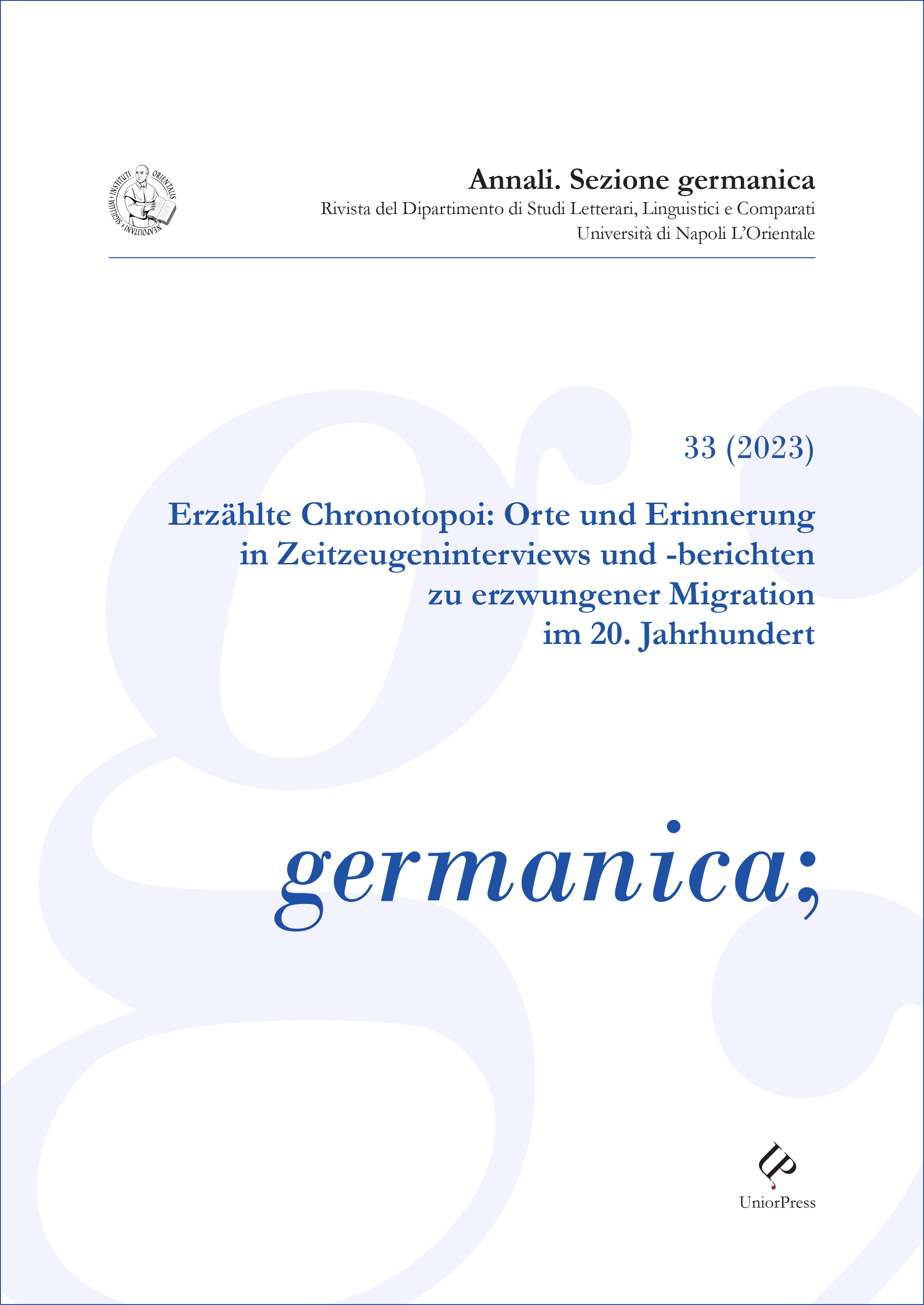“Und diese Dinge hat man den Kindern gegeben, mitgegeben”. I verbi tedeschi mitnehmen, mitbringen e mitgeben e la messa in prospettiva di percorsi come cronotopi
Abstract
Quest’articolo si basa sui dati dell’Israelkorpus, un corpus di interviste autobiografiche con ebrei di lingua tedesca fuggiti dalla Germania o dall’Austria occupata dai tedeschi negli anni Trenta del XX secolo ed emigrati in Israele (allora Palestina). La ricerca mette a fuoco il ruolo dei verbi con particella nell’espressione delle relazioni cronotopiche di eventi di movimento, in particolare negli eventi di attraversamento dei confini. Dall’analisi emerge che le persone intervistate nelle narrazioni dell’emigrazione possono trasmettere informazioni temporali e spaziali molto precise non solo verbi con le tipiche path particles (‘particelle di moto orientato’) come weg-, raus-, rüber- e durch-, ma anche con altri verbi, cioè tramite verbi transitivi con la particella mit- (mitnehmen, mitbringen, mitgeben). Quest’ultima categoria di verbi viene utilizzata sia in senso letterale (trasporto di persone e cose) sia in senso figurato (passaggio di idee, valori e tradizioni da una generazione all’altra).
Copyright (c) 2024 Ricarda Schneider

This work is licensed under a Creative Commons Attribution-NonCommercial-NoDerivatives 4.0 International License.
Gli autori che pubblicano su questa rivista accettano le seguenti condizioni:
- Gli autori mantengono i diritti sulla loro opera e cedono alla rivista il diritto di prima pubblicazione dell'opera, contemporaneamente licenziata sotto una Licenza Creative Commons che permette ad altri di condividere l'opera indicando la paternità intellettuale e la prima pubblicazione su questa rivista.
- Gli autori possono aderire ad altri accordi di licenza non esclusiva per la distribuzione della versione dell'opera pubblicata (es. depositarla in un archivio istituzionale o pubblicarla in una monografia), a patto di indicare che la prima pubblicazione è avvenuta su questa rivista.
- Gli autori possono diffondere la loro opera online (es. in repository istituzionali o nel loro sito web) prima e durante il processo di submission, poiché può portare a scambi produttivi e aumentare le citazioni dell'opera pubblicata (Vedi The Effect of Open Access).

